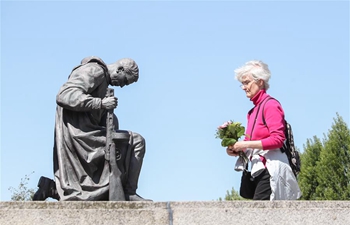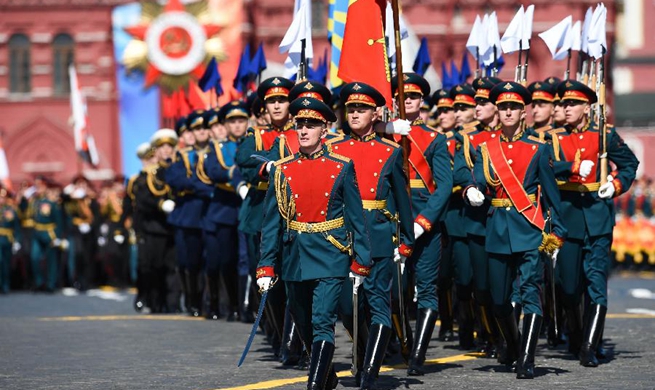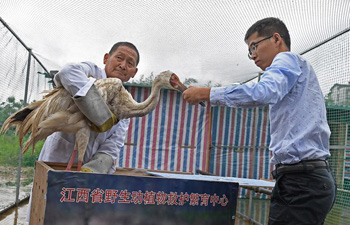WASHINGTON, May 9 (Xinhua) -- An international research team used computer simulations to individually predict, for the first time, how well cultured heart valves would grow, regenerate, and function in sheep, a large animal models, which is a milestone on the road towards being able to treat heart patients using new heart valves cultured from human cells.
The study published on Wednesday in the journal Science Translational Medicine revealed that changes to the structure of the heart valve that occur in the body during the dynamic regeneration process could be predicted by computer simulations and anticipated accordingly in the design.
"Thanks to the simulations, we can optimize the design and composition of the regenerative heart valves and develop customized implants for use in therapy," said the paper's senior author Simon P. Hoerstrup from the Institute of Regenerative Medicine at Universitat Zurich or UZH.
Valvular heart disease is one of the major causes of morbidity and mortality worldwide. Currently available artificial heart valve prostheses are an unsatisfactory solution, in particular for children with congenital heart defects, according to researchers.
Children with defective heart valves or blood vessels often have to undergo an operation to have them replaced by prostheses which cannot grow as the child's body grows. They then require multiple reoperations with an associated increased risk of surgical complications and considerable psycho-social stress for the young patients and their families.
The bioengineered replacements have significant advantages over the artificial implants currently in use: They do not cause immune reactions in the patient's body, and they can grow and regenerate themselves.
Prostheses of animal origin like those from pigs or cows also wear out with time and have to be replaced. Adult patients could therefore also benefit from regenerative heart valves and blood vessels.
"One of the biggest challenges for complex implants such as heart valves is that each patient's potential for regeneration is different. There is therefore no one-size-fits-all solution," said Hoerstrup.

















